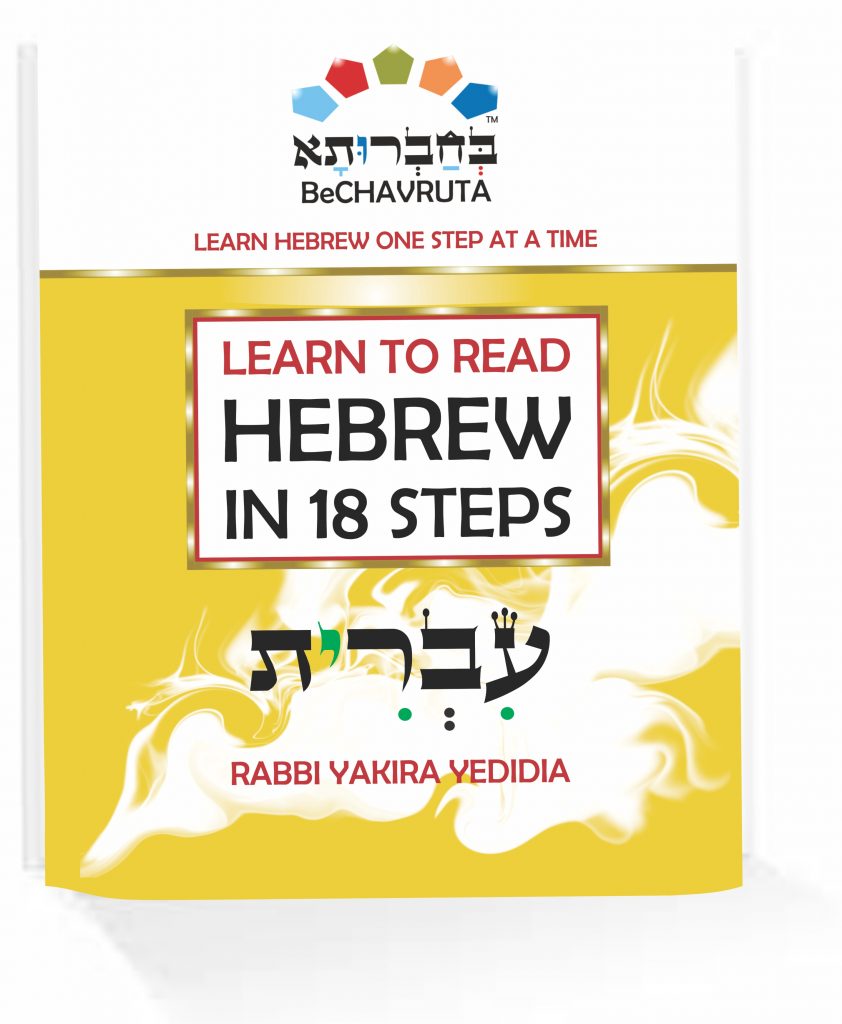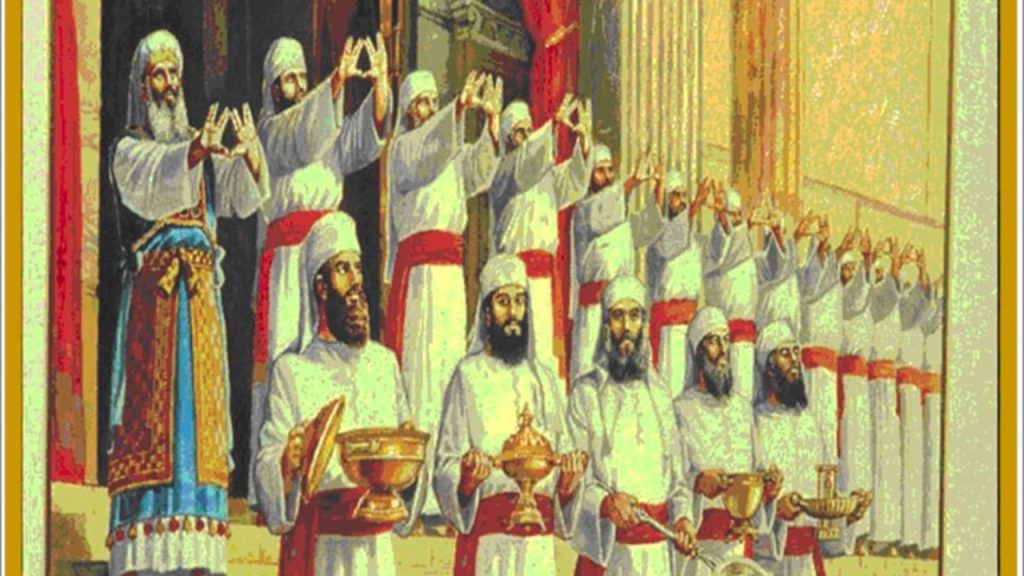The simple meaning of the Hebrew word EKEV is “because”. “Because” we fulfill the commandments (mitzvot) of the Torah, we will prosper in the Land we are about to conquer and settle in keeping with G‑d’s promise and our forefathers.
In Hebrew there are other words which mean “because”: KEY, BIGLAL, MIPNEY, MICHEIVAN.
Why does the Torah choose the word EKEV? Rashi explains that EKEV means a heel. We shouldn’t “step upon” certain commandments with our “heel” and do our best to fulfill all of the mitzvot.
In parashah Ekev Mosheh continues to speak to the Israelites, tells of the blessings of obedience to God, the dangers of forgetting God, (they will have to wipe out the people who are not believers in God), and directions for taking, conquering, and settling, in the Land of Israel.
Mosheh reminds them not to forget God’s commandments even after they enter the land of Israel and that they must continue to fear God. Mosheh also rebukes them for their failings in their first generation as a people; recalls Mount Sinai, receiving the Tablets of Stone, their worship of the Golden Calf, the rebellion of Korach, the sin of the spies, Aaron’s death, the Levites’ duties, giving warnings to serve God. “You have been rebellious against G‑d,” he says to them, “since the day I knew you.”
Mosheh reminds them of G‑d’s forgiveness of their sins, inscribing the Second Tablets following their repentance. G‑d also sustained them with daily manna from heaven during their forty years in the desert.
Mosheh describes the land they are about to enter as “flowing with milk and honey,” blessed with the “seven kinds” (wheat, barley, grapevines, figs, pomegranates, olive oil and dates). Commanding them to destroy the all the idols.
The black dot
One day, a professor entered his classroom and asked his students to prepare for a surprise test. They all waited anxiously at their desks for the exam to begin.
The professor handed out the exams with the text facing down, as usual. Once he handed them all out, he asked the students to turn over the papers.
To everyone’s surprise, there were no questions–just a black dot in the center of the paper. The professor, seeing the expression on everyone’s faces, told them the following:
“I want you to write about what you see there.”
The students, confused, got started on the inexplicable task.
At the end of the class, the professor took all the exams and started reading each one of them out loud in front of all the students. All of them, with no exception, defined the black dot, trying to explain its position in the center of the sheet.
After all had been read, the classroom silent, the professor started to explain:
“I’m not going to grade you on this, I just wanted to give you something to think about. No one wrote about the white part of the paper. Everyone focused on the black dot – and the same thing happens in our lives.
However, we insist on focusing only on the black dot – the health issues that bother us, the lack of money, the complicated relationship with a family member, the disappointment with a friend.
The dark spots are very small when compared to everything we have in our lives, but they are the ones that pollute our minds.
“Because”, cause and effect is being conveyed in parashat Ekev. May we all be able to read between the lines. Hear the rests in between a melody. May we all be able to take our eyes away from the black dots in your lives.
Kol Tuv.

7 Mitzvot in parashat Ekev
| 1. Not to derive benefit from ornaments of idols Deut. 7:25 |
| 2. Not to derive benefit from idols and their accessories Deut. 7:26 |
| 3. To bless the Almighty after eating Deut. 8:10 |
| 4. To love converts Deut. 10:19 |
| 5. To fear Him Deut. 10:20 |
| 6. To cleave to those who know Him Deut. 10:20 |
| 7. To swear in God’s Name to confirm the truth when deemed necessary by court Deut. 10:20 |
ORDER RABBI YAKIRA NEW BOOK “LEARN TO READ HEBREW IN 18 STEPS”
The 613 Mitzvot
The commandment of the tzitzit. The word tzitzit is related to the root word lehatzitz- to look, therefore a tzitzit is an object at which we look . In addition, the word tzitzit numerical value is 600. The tzitzit has 8 threads and 5 double knots in each corner (8+5=13), thus a tzitzit represents the 613 mitzvot in the Torah.
In The Torah there are 613 commandments, mitzvot, also known as the Law of Moses (תרי״ג מצוות, taryag mitzvot). The 613 mitzvot are first recorded in the 3rd century CE, when Rabbi Simlai mentioned it in a sermon that is recorded in Talmud Makkot 23b.
The 613 commandments include 248 “positive commandments”, to perform an act (mitzvot aseh), and 365 “negative commandments”, to abstain from certain acts (mitzvot lo taaseh). The negative commandments number 365, which coincides with the number of days in the solar year, and the positive commandments number 248, a number ascribed to the number of bones and main organs in the human body.
Though the number 613 is mentioned in the Talmud, its real significance increased in later medieval rabbinic literature, including many works listing or arranged by the mitzvot. The most famous of these was an enumeration of the 613 commandments by Maimonides, The Rambam.
Many of the mitzvot cannot be observed now, following the destruction of the Second Temple, although they still retain religious significance. According to one standard reckoning, there are 77 positive and 194 negative commandments that can be observed today, of which there are 26 commands that apply only within the Land of Israel. Furthermore, there are some time-related commandments from which women are exempt (examples include shofar, sukkah, lulav, tzitzit and tefillin). Some depend on the special status of a person in Judaism (such as kohanim), while others apply only to men or only to women. According to Rambam Organized by Parshah. based on Wikipedia and http://www.vaadrv.org/rambam613mitzvot.asp ONE BIG IMPORTANT NOTE WHEN USING THIS LISTING: This listing is not all inclusive. Rambam may site multiple sources for a mitzvah is his works but this list currently only gives one source for each mitzvah.
WOULD YOU LIKE TO READ HEBREW?
THE BEST TIME TO PLANT A TREE WAS 20 YEARS AGO. THE SECOND BEST TIME IS NOW!
Take your first step, and in as little as 9 hours of BeCHAVRUTA Crash Course Book, you will be able to Read Hebrew Fluently & Accurately like a Pro!

ORDER RABBI YAKIRA NEW BOOK “LEARN TO READ HEBREW IN 18 STEPS”
“Original, fun, and effective, this is a superb way to learn to read Hebrew.“- DENNIS PRAGER
“A clear, lucid and immensely helpful guide to learning Hebrew. Takes the reader by the hand and introduces the holy tongue in living color.“-RABBI DAVID WOLPE
“An instant classic! Rabbi Yakira has written a primer on Hebrew that is both enchanting & colorful. It is sure to capture the interest of students & magically introduce them to the Hebrew language!”-RABBI DR DAVID ELLENSON
The Priestly Blessing
Check out YedidYah “The Priestly Blessing” Birkat Hakohanim. Music by Rabbi Yakira Yedidia https://youtu.be/YNE11QdEMN0
יְבָרֶכְךָ יהוה, וְיִשְׁמְרֶךָ- May the LORD bless you and guard you
יָאֵר יהוה פָּנָיו אֵלֶיךָ, וִיחֻנֶּךָּ -May the LORD make His face shed light upon you and be gracious unto you
יִשָּׂא יהוה פָּנָיו אֵלֶיךָ, וְיָשֵׂם לְךָ שָׁלוֹם- May the LORD lift up His face unto you and give you peace
Yevarechecha Adonai, V’Yishmerecha
Ya’er Adonai Panav Eleycha, ViChoneka
Yisa Adonai Panav Eleycha, V’Yasem Lecha Shalom
(Number 6:24-26).
Check out YedidYah “The Priestly Blessing” Birkat Hakohanim. Music by Rabbi Yakira Yedidia https://youtu.be/YNE11QdEMN0
Check out YedidYah Psalm 96 “Yiram Hayam” Music by Rabbi Yakira Yedidia https://youtu.be/aTBD4i9nvXw

This blog article was inspired by chabbad.org, Sefaria.org, Wikipedia.org,

